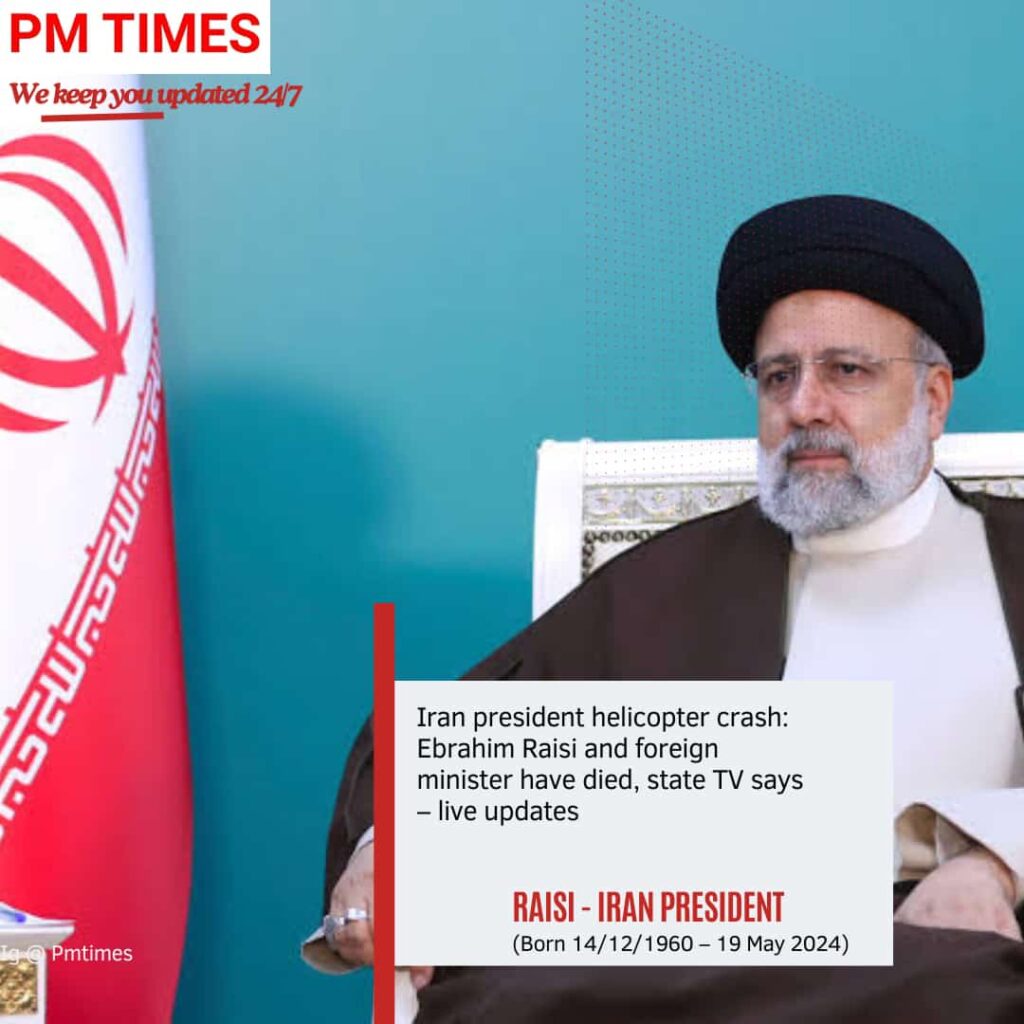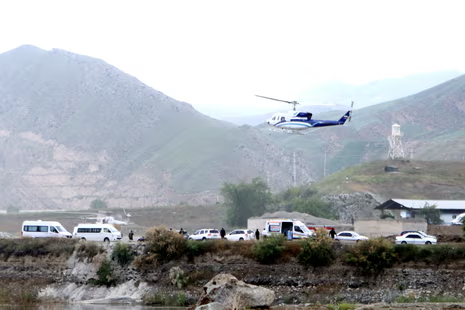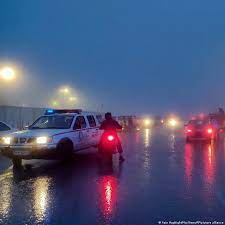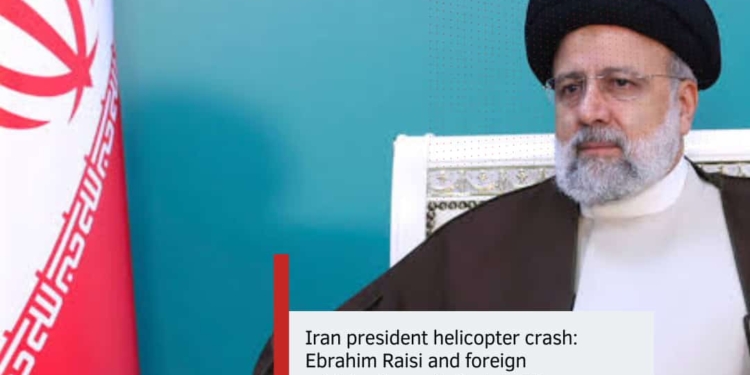As the country’s hardline clerical elite navigates escalating regional tensions and domestic unrest, ultraconservative Iranian President Ebrahim Raisi lost his life, along with his foreign minister, in a helicopter crash in Iran’s rural northwest on Sunday. This has created additional uncertainty.
The deaths of two of Iran’s most powerful political leaders coincide with the nation’s severe political and economic collapse and a dangerously high level of tension with neighboring Israel.

The crash scene of the helicopter was located on a steep, forested hillside, with only a blue and white tail left of the aircraft, according to Red Crescent drone footage that was broadcast on Iranian official TV.
According to state media, the collision on Sunday happened as 63-year-old Raisi and Foreign Minister Hossein Amir-Abdollahian were leaving a ceremony to launch a dam near Iran’s border with Azerbaijan.

According to the IRGC-run media outlet Sepah, those on board included three crew members, the governor of the province of Eastern Azerbaijan, an imam, Raisi’s head of security, and a bodyguard.
The collision prompted an hours-long search and rescue effort, during which the European Union and Turkey, among others, provided aid; however, the dense fog and the rapidly dropping temperatures made conditions difficult for the emergency personnel.
Raisi’s murder occurs seven months into Israel’s war against Hamas in Gaza, which has escalated tensions throughout the Middle East and exposed a long-running covert conflict between Iran and Israel. Raisi’s death also occurs at a delicate moment for Tehran on the domestic front.
In reaction to what seemed to be a fatal Israeli bombardment on Iran’s consulate in Damascus, Iran last month conducted an unprecedented drone and missile attack on Israel, marking its first-ever direct attack on the nation.

Iran’s hardline government has faced major challenges under Raisi in recent years as a result of youth-led protests against clerical authority and depressing economic conditions. Iranian authorities have been cracking down harder on dissent after protests around the country erupted over the death of a young woman in 2022.
The Iranian government called a “urgent meeting” after Raisi’s death was officially announced on Monday. The meeting was called by the clerical establishment, led by Supreme Leader Ayatollah Ali Khamenei, to discuss the appointment of a new president they might support.
Vice President Muhammad Mokhber is next in line for the presidency and needs Khamenei’s approval, the Islamic Republic’s ultimate judge of internal and international matters.




